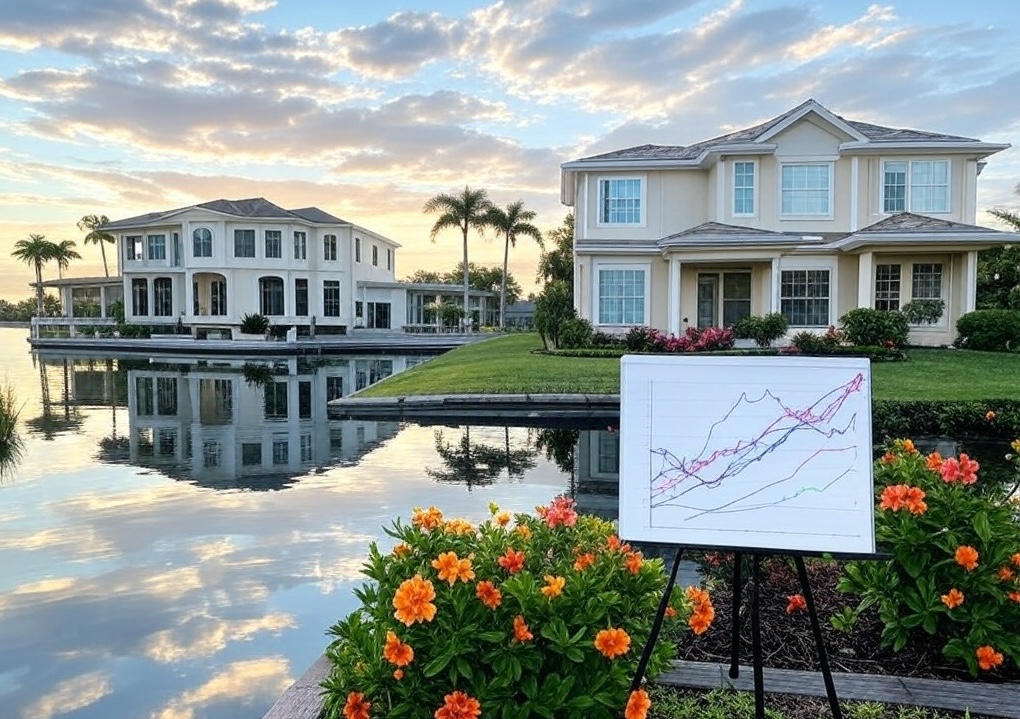Breaking News

Popular News






Enter your email address below and subscribe to our newsletter
We hold your privacy highly, this is the only reason we will use your email address. Cancel anytime.

South Florida has long been celebrated for its sunny climate, booming luxury developments, and a steady influx of new residents. However, recent data suggests that beneath the glittering surface, troubling signs may be pointing toward an impending market correction—or even a crash.
A recent Newsweek report highlights a critical development: South Florida’s housing inventory is rising faster than ever before, while buyer demand appears to be weakening. According to the report, as inventory increases and prices begin to level off, market dynamics are shifting. The traditional supply-and-demand equation that once pushed home values sky-high is now under stress, potentially setting the stage for a dramatic price downturn
Historically, limited inventory in South Florida has driven fierce bidding wars and sustained price growth. Now, however, a significant influx of new listings is diluting that scarcity. With more homes hitting the market than buyers can absorb, the pressure to reduce prices intensifies.
Homeowners in South Florida are grappling with skyrocketing insurance costs. These rising premiums—driven by the increasing threat of hurricanes and flooding—are squeezing buyer budgets and making homeownership less attractive. In some regions, experts warn that unsustainable insurance fees could force owners to lower prices dramatically, further tipping the market toward a crash
Even as mortgage rates have seen a slight dip, overall economic uncertainty—from fears of recession to political instability—has left many potential buyers hesitant. When a large segment of the market retreats, the once-sunny outlook dims considerably, potentially triggering a cascading decline in home values.
Not everyone agrees that a full-blown crash is imminent. Some analysts maintain that, despite the growing inventory and higher insurance costs, the market will merely experience a modest correction rather than a catastrophic fall. However, a closer look reveals why caution is warranted:
While some industry experts argue that a crash akin to the 2008 recession is unlikely, the current mix of oversupply, skyrocketing insurance costs, and cautious buyer sentiment paints a more ominous picture. If these trends persist or worsen, South Florida could see a sharp, unanticipated drop in home values—an outcome that many term a “crash” rather than a gentle correction.
A severe downturn in South Florida’s housing market would not only affect homeowners and investors but could also have broader economic repercussions. Reduced property values might lead to a decrease in property tax revenues, impairing local government services and prompting a vicious cycle of economic decline. Additionally, a sudden market correction could leave many borrowers “underwater” on their mortgages, exacerbating financial distress and potentially triggering defaults.
South Florida’s housing market, once the envy of the nation, now appears to be teetering on the edge. With inventory swelling, insurance costs soaring, and buyer enthusiasm waning, the region’s once-unassailable market dynamics are under unprecedented pressure. While some experts predict only a modest correction, the convergence of these factors suggests that a more severe downturn—or crash—could be just around the corner.
For homeowners, investors, and prospective buyers, staying informed and cautious is key. As the market evolves, those who monitor these early warning signs may be better positioned to weather the storm.